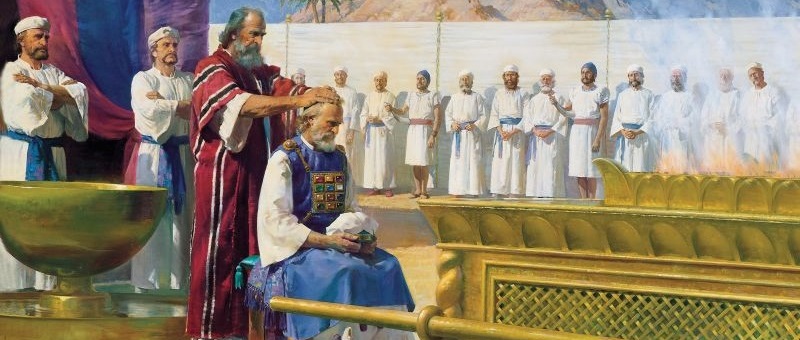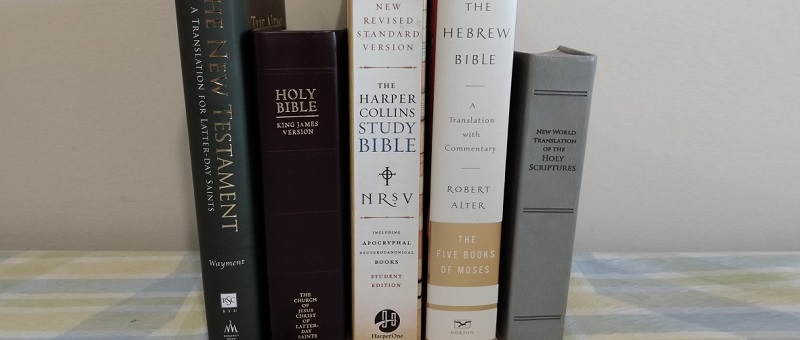We all know the story. Esau comes in from the hunt one day starving and hangry. His younger brother (by a few minutes), Jacob, is making a stew. Esau begs for some. Fast-dealing Jacob says, “Trade me the birthright, and it’s yours.” Esau agrees, swapping his promised inheritance for a bowl of red lentil soup (Genesis 25:29–34). The quick-and-easy Sunday School lesson is apparent: because Esau doesn’t value his birthright, he loses his birthright.
Or does he?
What Was the Birthright?
The birthright was the right to the principle inheritance of the father, given to his firstborn son.
Sometimes the birthright was a “double portion,” meaning the eldest son got a share of the inheritance twice as big as his brothers’. (For example, Joseph of Egypt, who received the birthright from Jacob, had two tribes of Israel descend from him—Ephraim and Manasseh—instead of one.)
Other times, the birthright was the father’s entire estate of property and chattel. For example, before Abraham died, he gave gifts to his sons by his concubines and sent them away, but he “gave all that he had unto Isaac” (Genesis 25:5–6).
In either case, the birthright carried with it the responsibility to look after and provide for the household—including any widowed mothers or unmarried siblings—and to become the next leader in the line of patriarchal authority.
The Fate of Isaac’s Estate
Let’s fast-forward a few years. Isaac is growing old and wants to give Esau his blessing. (The blessing was distinct from the birthright and could be inherited separately, as evidenced in Genesis 27:36.) The blessing represented a bestowal of divine approval, protection, and promised prosperity, and was often followed by the Lord personally appearing to the son to renew the covenant made with Abraham.
Isaac’s wife Rebekah, favoring her younger son over her elder, helps Jacob use deceit and subterfuge to trick Isaac into giving the blessing—which included being a lord above his brethren—to Jacob, instead of to Esau.
Esau is (understandably) upset and furious, and plots to slay his twin brother. Jacob skips town and heads off to the distant city of Haran. And he goes alone. He doesn’t take his birthright inheritance.
The text doesn’t state this directly, but it’s inferred. There’s no mention of servants or cattle traveling with him. On his way he sleeps at Beth-el with a stone for a pillow, apparently meaning he’s traveling without even a tent or proper bedding (Genesis 28:11). When he gets to his uncle Laban’s household, he has no money for a dowry for Rachel, meaning he has to work seven years to be able to marry her (Genesis 29:18). (Oh, wait. Fourteen years. Thanks, Laban.)
Jacob finally returns to Canaan over twenty years later (Genesis 31:3, 42). There he hears that Esau is coming to meet him—with 400 combat-ready men! And now here is the question—How did Esau acquire such a large household?
Isaac is still alive and living in Hebron: he won’t die until a couple chapters later, at the end of Genesis 35.1 But there’s no mention of Jacob (or Esau) ever inheriting Isaac’s estate upon his death.2 The text is inconclusive, but my assumption is that by the time Jacob returns from Padan-Aram, Esau has already inherited part or most of Isaac’s chattel and servants. How else would he acquire 400 menservants, plus their families and enough flocks to support and employ them, in twenty years?3
The Price of Jacob’s Deception
In this larger context, we can reassess the ramifications of Jacob’s (and Rebekah’s) choice to gain Isaac’s blessing by deceit. Before they made that choice, Jacob had a clear path to the birthright inheritance: Esau himself acknowledged that Jacob had lawfully obtained it from him (Genesis 27:36). But by seeking the blessing as well, and in doing so not through lawful (albeit lopsided) trade but through unlawful deception, Jacob set in motion a series of circumstances that ultimately robbed him of the birthright. He infuriated Esau and had to flee. He had no money whereby to obtain Rachel quickly. He had to work for twenty years before coming back to reunite with his family.
The ramifications don’t stop there. Upon returning to Canaan, Jacob is worried that Esau will still try to kill him, so he takes costly steps to appease and placate Esau. First he sends Esau a whopping 520 domesticated animals as a gift (Genesis 32:13–21)! Then, in his interactions with Esau, he repeatedly calls Esau “my lord,” and refers to himself as “thy servant” (Genesis 33:5, 8). Even when Esau calls Jacob “my brother” (Genesis 32: 9) and offers to return the more-than-generous gift, Jacob insists he keep it and continues to use the deferential titles (Genesis 32:10–15).
What’s striking about this exchange is that it explicitly reverses the blessing that Jacob obtained by trickery. In Isaac’s blessing of Jacob, he blessed Jacob to “be lord over thy brethren,” and told Esau, “Behold, I have made [Jacob] thy lord, and all his brethren have I given to him for servants” (Genesis 27:29, 37). But now Jacob is calling Esau “my lord” and positioning himself as the servant.
In this light, then, Jacob ironically obtains neither the blessing nor the birthright. His father’s inheritance (probably) goes to Esau, and Esau becomes a lord over Jacob. In Jacob’s attempt to gain the blessing dishonestly, he lost what he hoped to gain and what he had already lawfully stolen.
The Blessing and Birthright in Future Generations
But the story doesn’t end there, because birthrights and blessings extend down through the generations and affect the destinies of nations.
In the end, Jacob’s posterity does obtain the birthright. The Israelites eventually become more numerous, powerful, and wealthy than the Edomites, giving rise to two nations (Israel and Judah) instead of one (Edom) and holding more territory.
The blessing is also ultimately fulfilled. It is through Jacob, not through Esau, that the Lord’s promises to Abraham are extended and renewed. In later time periods, the Israelites under David and Solomon conquer and subjugate the Edomites to the south, fulfilling the promise that Jacob would become lord over Esau.
The Edomites eventually regained their independence during the decline of the Kingdom of Judah, fulfilling Isaac’s blessing to Esau that “[thou] shalt serve thy brother; and it shall come to pass when thou shalt have the dominion, that thou shalt break his yoke from off thy neck” (Genesis 27:40). But later in history, the descendants of Jacob conquer the descendants of Edom again, when the Jewish Hasmonean dynasty conquers the Idumeans (a.k.a. Edomites) around 100 B.C. and force their conversion to Judaism.
Thus the struggle between Jacob and Esau reverberates across history, playing out in the lives of their descendants unto the third, fourth, thirtieth, and fortieth generations.
Lessons from Jacob and Esau
When we study and teach Genesis 27, we often jump through hoops, trying to justify Jacob and Rebekah in their deceit because we know that Jacob became God’s chosen patriarch.
I do not think we need to justify Jacob. I think when we look at the narrative as a whole, we see a powerful polemic against deceit and strife. Jacob strove with his elder brother from the womb (Genesis 25:22–23), culminating in his act of deceit to gain the blessing. And while God (and Isaac) ultimately honored that blessing, Jacob had to bear the consequences for how he obtained it: conflict with Esau, flight to a distant land, and forfeiture of his share of the inheritance. Ultimately, to heal the animosity between him and his brother (and save his life), Jacob had to pretend he had no claim to either the birthright or the blessing.
To me, the message becomes clear: If you want to seek blessings from God’s hand, don’t seek them through Jacob’s path of strife, competition, and deceit. Seek them the way Abraham did: By righteous desires, unyielding faith, and strict obedience. Seek them the way Joseph did: By hard work, moral integrity, and a willingness to forgive.
Otherwise, you may gain a blessing just to give up a birthright.
Summary
When we study and teach Genesis 27, we often jump through hoops, trying to justify Jacob and Rebekah in their deceit because we know that Jacob became God’s chosen patriarch.
I do not think we need to justify Jacob. I think when we look at the narrative as a whole, we see a powerful polemic against deceit and strife. Jacob strove with his elder brother from the womb (Genesis 25:22–23), culminating in his act of deceit to gain the blessing. And while God (and Isaac) ultimately honored that blessing, Jacob had to bear the consequences for how he obtained it: conflict with Esau, flight to a distant land, and forfeiture of his share of the inheritance. Ultimately, to heal the animosity between him and his brother (and save his life), Jacob had to pretend he had no claim to either the birthright or the blessing.
Questions to Ponder
- When God prophecies to Rebekah that there are two nations in her womb and that the elder shall serve the younger (Genesis 25:23), is He declaring His will? Or merely prophesying the future through His omniscient foreknowledge of Jacob’s and Esau’s character?
- If Rebekah and Jacob had not sought the blessing by deceit, would God have provided a different route whereby Jacob would have become the spiritual heir to the promises?
- What similarities and differences exist between Jacob’s life and Joseph’s life?
1. At least, this is how the current text orders the chronology. Most scholars split Genesis into two or three source documents (vis-à-vis the Documentary Hypothesis). According to the theory, one source document has Isaac passing away shortly after giving Joseph the blessing (Genesis 27:2, 41), the other has him passing away well after Jacob returns (Genesis 35:27–29).
2. Complicating this assumption is that in Genesis 35:8, before Isaac’s death, it mentions the death of Rebekah’s nurse-maid Deborah and implies that she was part of Jacob’s household. This suggests that Jacob has taken on the birthright responsibility of providing for members of the father’s household. Considering how Rebekah favored Jacob over Esau, however, it would not be surprising if Rebekah’s nurse-maid ended up in Jacob’s household in her old age, regardless of birthright responsibility.
3. Certainly Esau could have been building up his own household through his own efforts, as Jacob has been doing. But Jacob’s fear of military defeat implies that Esau’s household is much larger than Jacob’s, despite Jacob having been continually prospered of the Lord for the last twenty years. More likely is that Esau inherited the majority of Isaac’s estate, then continued to expand it with his own efforts.
Banner credit: Francesco Hayez, Meeting of Jacob and Esau, 1844. Public domain. Via wikiart.org.



Jeremy,
You have written an intriguing blog. There are many parts of the Bible that make me raise an eyebrow; Jacob deceiving his father is just one of them. Your article raises the question of natural laws. Our God is a god of law, the most obvious being the law of the harvest: you reap what you sow. This story is a good example of that law.
When Jacob got the blessing from his father by fraud, he naturally created animosity between him and his brother Esau. Jacob then paid for that injury the next twenty years. I don’t think God “made” those bad things happen to Jacob. I think He “allowed” bad things to happen to Jacob by law. We can learn from this message. God allows both good and bad to happen to us in our lives, by law, according to the seeds we sow.
Jacob reaped a harvest from his deeds: some good, some bad. He ultimately was blessed because of his long-term decision to follow God, but his short-term actions caused him some “complications” for awhile.
Thanks, Jeremy, for giving me your perspective on this Bible story. You are very good at picking up on little details that provide a bigger picture.
Thank you for bringing in this concept of natural laws! Yes, that’s exactly the lens I view this story through.
Jeremy, I commend you for your erudite explanations of complicated Old Testament history!
I love the JST, which restores (also in the New Testament) many of the missing “plain and precious” truths as mentioned by Nephi in 1 Nephi 13.
I look forward to many more of your well-researched writings!
Thank you, Craig! I’m looking forward to sharing more articles!